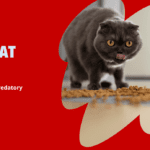As a cat owner, you may be curious about the many human foods that your feline companion can consume. Smoked salmon is one delicacy that comes to mind frequently. However, before you decide to share this delicacy with your cat, you must first determine whether it is safe for cats to consume. In this post, we will look into the issue of cats eating smoked salmon and discuss the hazards and solutions.

Understanding the Feline Diet
Before we get into the intricacies of smoked salmon, it’s important to understand that cats have certain dietary needs. Their bodies have evolved to thrive on a diet high in animal protein, and they have dietary requirements that differ from those of humans. While cats are obligate carnivores, which means they must eat predominantly meat, certain human foods may not agree with their digestive systems.
The Risks of Smoked Salmon for Cats
While salmon can be a healthy supplement to a cat’s diet due to its omega-3 fatty acid and protein content, smoked salmon has some added issues.
- High Sodium Content: Smoked salmon is typically heavy in salt. Cats have a lower tolerance for sodium than humans, and excessive ingestion can lead to health problems.
- Presence of Seasonings and Spices: Smoked salmon is frequently seasoned or flavoured, with substances such as garlic or onion powder. These seasonings are poisonous to cats and should thus be avoided.
- Potential for Contamination: Smoked salmon may also be contaminated with pathogens such as Listeria or parasites such as tapeworms. These pollutants can endanger the health of cats.
Health Concerns for Cats
Feeding smoked salmon to cats can lead to several health concerns:
- Sodium Toxicity: Excess sodium consumption in cats can result in dehydration, electrolyte imbalances, and kidney issues. It’s critical to keep a close eye on their sodium consumption.
- Digestive Issues: Smoked salmon’s rich and fatty composition may induce digestive problems in cats, resulting in vomiting, diarrhoea, or pancreatitis.
- Allergic Reactions: Some cats may be allergic to fish or to specific additives found in smoked salmon. Allergic responses can cause skin problems, itching, and gastrointestinal problems.
Alternatives to Smoked Salmon
While smoked salmon is not recommended for cats, there are other foods that can provide equal nutritional benefits. Consider the following options:
- Cooked Fresh Salmon: Cooked, unseasoned salmon is a safer option for your cat since it eliminates the dangers associated with smoking, seasonings, and high sodium content.
- Commercial Cat Food: Many respectable cat food companies sell specialised recipes containing salmon or other fish. These products are designed to suit the nutritional needs of cats and can be a dependable supply of critical nutrients.
- Consulting a Veterinarian: If you are unclear about the ideal food for your cat, it is always advisable to talk with a veterinarian. They can offer tailored advise based on your cat’s individual demands and medical issues.
Conclusion
To summarise, while the aroma and taste of smoked salmon may lure cats, it is best to avoid feeding it to them. The high sodium level, seasonings, contamination risk, and associated health risks make it inappropriate for feline ingestion. Instead, choose safer alternatives such as grilled fresh salmon or commercially available cat food created expressly to suit their nutritional demands.
FAQs
- Can cats eat raw salmon?
-
- Raw salmon is just as dangerous as smoked salmon. It may contain pathogenic germs or parasites that cause health problems in cats. It is best to prepare salmon before serving it to your kitty companion.
- Is there any fish that cats can eat?
-
- Cats may consume specific varieties of fish, such as cooked plain salmon, trout, or whitefish. However, it is critical to remove the bones and fully boil the fish to avoid any potential health hazards..
- Can cats eat canned salmon?
-
- Cats can be fed canned salmon in moderation. Make sure it’s plain and free of seasonings, additives, or high sodium levels. Before introducing any new food to your cat’s diet, please consult with your veterinarian..
- What should I do if my cat accidentally eats smoked salmon?
-
- If your cat accidently consumes smoked salmon, keep an eye out for any signs of gastrointestinal discomfort, such as vomiting or diarrhoea. If symptoms persist or worsen, seek veterinarian care as soon as possible.
- Are there any other human foods that cats should avoid?
-
- Chocolate, onions, garlic, grapes, raisins, and caffeine are all frequent human foods that are harmful to cats. For your cat’s safety, you must conduct study and ensure that you are aware of all potentially toxic foods.
Note: The information provided in this article is for educational purposes only and should not replace professional veterinary advice. If you have any concerns or questions about your cat’s diet, consult with a qualified veterinarian.
Disclaimer:
At TheCatCare.org, we take great care to ensure that the information we provide is accurate, up-to-date, and reliable. However, it’s important to note that we are not medical advisors or licensed veterinarians, and the information we provide should not be considered a substitute for professional advice.

Franky Watson is a certified pet care specialist with over 10 years of experience working with animals of all kinds. He has a degree in veterinary science and is passionate about educating pet owners on how to provide the best possible care for their furry friends. In addition to writing articles on pet care topics, Franky Watson also volunteers at local animal shelters and fosters animals in need. When he’s not caring for animals, he enjoys hiking and spending time with her own pets, including two cats.





